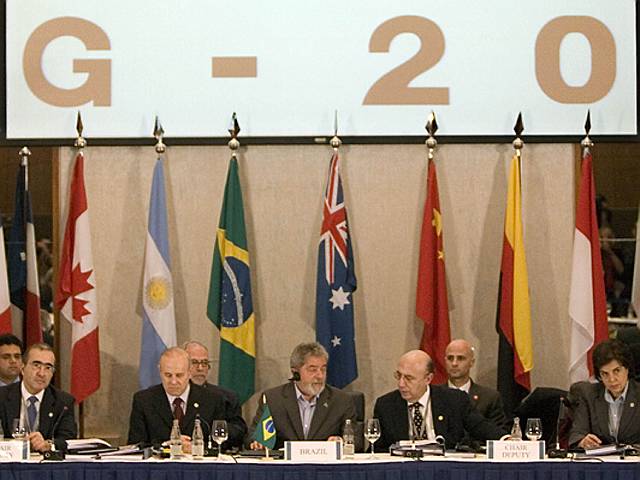Unless the
G20 can adequately
deal with climate
change, development
assistance to poor
countries, food
security and the
financial crisis,
globalization can’t
be made to work,
says the G20’s
inventor, former
prime minister Paul
Martin.
He said that
If the G20, at its
next summit in Korea
this fall, doesn’t
send the right
signal to the
forthcoming Mexico
conference on
climate-change
finance with the
result that the
conference fails,
the ability of the
developing world to
survive climate
change will be very
much at risk.
If it doesn’t
recognize that
there will be
another major food
crisis and take
steps to ameliorate
it – at a time of
rising populations,
food export freezes
and disruptive
market mechanisms –
havoc
will be wreaked,
especially in
Africa.
And if the G20
doesn’t agree to
international
regulation of the
world’s banks,
the next financial
crisis may well be
too big for any
stimulus package to
save the world’s
economies.
In addition to
rights of states, he
said, there also
must be duties of
states. The impact
from poorly
regulated U.S. and
European banks with
excess leverage and
inadequate
capitalization and
liquidity spilled
across borders to
harm the economies
of other states –
hence the need for
bank regulations and
monitoring that
transcend national
borders.
Economist Sylvia
Ostry, for decades
one of the federal
government’s most
senior public
servants and
international
negotiators,
suggested at the
Couchiching
Conference that the
G20 at its next
meeting
appoint an
eminent-person’s
group from among its
member states to set
the organization’s
agenda for the next
five years.







